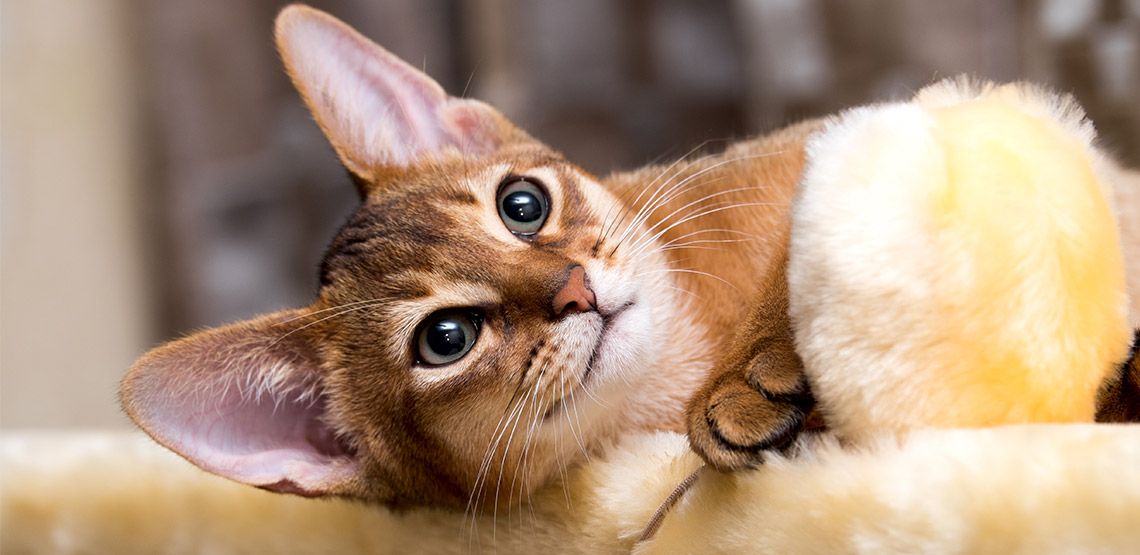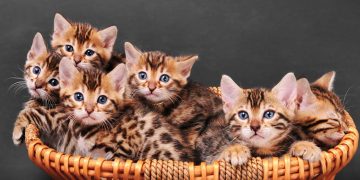A pet owner's guide to the Abyssinian cat
One of the world's oldest and most revered breeds, the Abyssinian cat resembles a puma in its sleek, lithe, muscular build. According to registered ownership statistics, these short-haired cats are extremely popular pets in the United States.
History of the Abyssinian Cat
This breed takes its name from its reputed place of origin, Ethiopia (formerly known as Abyssinia). While their true history is a matter of much debate, it is known that these cats were first shown in the Western world in the 1870s in England. It's widely believed that they were brought to Europe by colonialists returning home from jaunts through Africa.
Appearance
Size: These wiry, medium-sized cats tend to weigh 8 to 10 pounds in adulthood.
Coat: According to Abyssinian breeders, these cats should have dense, soft coats with tabby cat markings. Common colors include fawn, blue, burnt orange, burnt sienna and red.
Eyes & Ears: Abyssinian cats have almond-shaped eyes that range in color from gold or copper to hazel or green. This breed's ears are broad, with cupped bases and pointy tips.
Tail: These cats have a relatively long tail, which tapers down to a pointy tip.
You May Also Like:
Related Search Topics (Ads):
Disposition
Abyssinian cat breeders warn that these animals aren't meant for owners who want a lap cat. Though they're active and enjoy exploring, they also tend to be timid by nature. Even though they're disinclined to remain in their owners' laps, they still crave a lot of attention from their owners and show signs of depression or anxiety if they're ignored.
Health and Care
Feeding: This breed is known for stomach sensitivity. Abyssinian kittens who tend to vomit should be taken to a vet, who can recommend a dietary program to stabilize nausea.
Grooming: These cats are low-maintenance as far as grooming is concerned. A good brushing to remove dander and spread natural skin oils throughout the cat's fur is usually all that's needed, though some Abyssinian breeders suggest also giving these cats a warm-water bath during shedding season.
Activity Level: The Abyssinian is an active cat breed that enjoys exploring the outdoors. It's a good idea to install a cat door so your pet may come and go as it pleases.
Health Problems: Since this breed is prone to gingivitis, it helps to be vigilant about proper cat dental care. A slipping kneecap condition known as luxating patella can be a problem, too, as can kidney and retina issues.
Average Lifespan: Abyssinians live about 9 to 15 years.
Find Abyssinian Cats for Sale
Breeders offer Abyssinian kittens for sale once they've reached a minimum age of 12 to 16 weeks since younger cats are too delicate to be vaccinated. Body markings and bloodlines, as recognized by national cat breeding associations, determine the price of a kitten. Expect to pay in the ballpark of $700 to $1,000 or more for a healthy cat of certified parentage.
As an alternative, seek out Abyssinian cat rescue resources through your local SPCA or animal control organization. You save money through an Abyssinian rescue center and give a neglected or abused adult cat a much-needed loving home.

